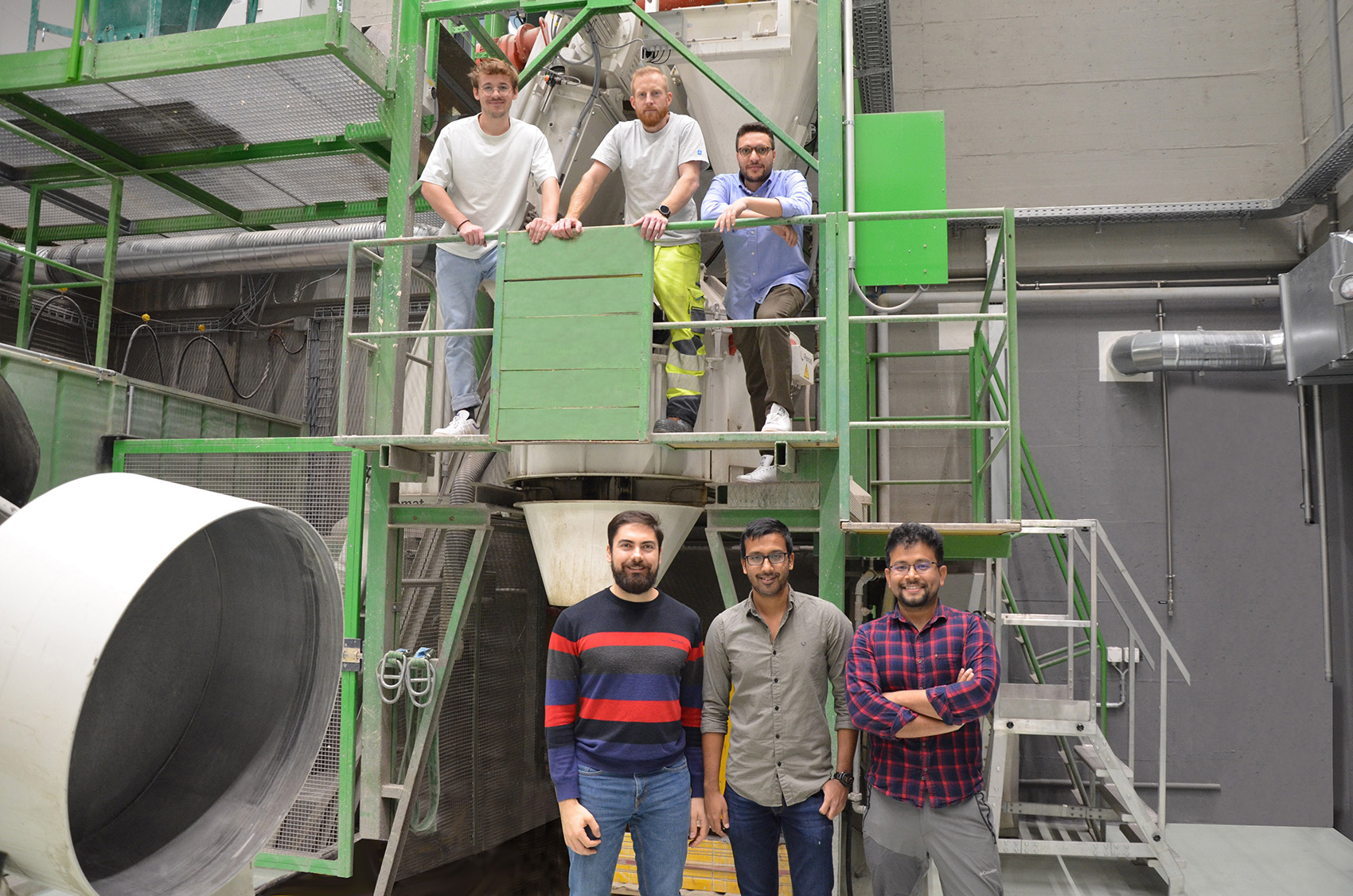Eco-friendly and ‘fast’ concrete put to the test
A construction industry without concrete seems impossible. However, due to the huge volumes of concrete production globally, its massive carbon footprint makes it a major environmental concern. D-BAUG researcher Arnesh Das and his team have developed a solution, which is now being tested with an industrial partner.
When asked about the benefits of Calspak’s concrete, Arnesh, founder of ETH startup Calspak, reported: “Compared to current concrete products, our technology reduces greenhouse gas (GHG) emissions by up to 50%, and cost by 20%, while improving productivity by 50% due to the ultra-quick hardening process.” Calspak’s technology outperforms existing market solutions and has the potential to be applied to a wide range of concrete products.
Concrete is composed of cement and chemical admixtures, wherein cement is responsible for a large carbon footprint because of the high amounts used. The GHG emissions associated with concrete construction can be substantially reduced by including supplementary cementitious materials to replace a part of the cement. These are typically locally sourced natural materials, waste or industrial residues. However, such mixtures have a much lower reactivity than cement and therefore a lower strength, which reduces productivity.
Clever materials technology
Years of scientific research have resulted in a large-scale proof-of-concept, demonstrating that Calspak’s technology can overcome most of the limitations of existing low-carbon cement. The novelty and uniqueness of the Calspak technology lies in the specific ultra-low carbon material composition and the chemical admixture formulation that makes it possible to use drastically low amounts (4-5 times lower) of cement for various concrete products. Special chemical admixtures have been developed that complete the patented magic mix.
“Calspak’s concrete hardens quickly, which improves productivity, and this aspect is of special interest for the precast concrete industry.”Arnesh Das
Arnesh's doctoral research on fast-reacting cement at the ETH-Department of Civil, Environmental and Geomatic Engineering helped him develop this new technology. Existing alternative mixes are often climate-friendly but expensive and slow to harden limiting their wide-scale applicability. “Calspak’s concrete hardens quickly, which improves productivity, and this aspect is of special interest for the precast concrete industry,” states Arnesh.
Innosuisse project with an industrial partner
Arnesh is now excited about the Innosuisse project he has just started with a major market player to test his ultra-low-carbon and fast-hardening concrete on an industrial scale. In the first step, they will test precast concrete focusing on the strength and durability requirements in real-life applications. “If everything goes to plan, we hope to be entering the market in 2027”, says Arnesh. His ultimate goal is to develop similar solutions for ready-mix concrete applications too, which has a much larger market size. A couple of companies have already signalled their interest and the Calspak team is happy to discuss collaboration opportunities.
